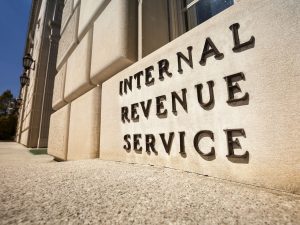Intuit has been forced to cede significant ground in a recently renegotiated agreement with the IRS, and it may only be the beginning for the beleaguered firm. The Internal Revenue Service amended its Free File deal with the tax software industry, and the government agency makes no promises that it won’t compete with private sector companies.
The IRS noncompete clause contained in the original Free File IRS memorandum was the result of a two-decade-long lobbying campaign launched by Intuit. The tax prep software provider viewed government provision of free tax software as an encroachment on its business and pushed to limit these initiatives where possible. Conversely, the fin-tech engaged in several tactics to divert customers to cost-based options that eventually landed Intuit in a heap of legal trouble.
It was an April 2019 ProPublica report that exposed firms like Intuit who were deliberately hiding free tax filing options from search engines so customers could not find them. The ensuing scandal led to at least five states launching investigations into Intuit’s marketing practices and the provision of free tax filing services. H&R Block has also been accused of hiding its complimentary tax software but removed the restrictions following the public backlash.
"These steps will help further protect taxpayers and make important improvements to the program," said IRS Commissioner Chuck Rettig. "The IRS is committed to improving the Free File program and providing a great option for taxpayers to consider when preparing their taxes."
“The IRS and FFI (Free File, Inc.) will also continue to work together to identify and explore ways… to pursue meaningful opportunities to enhance taxpayer awareness and use of the Free File Program," Rettig added.
Known as IRS Free File, the original agreement was struck in 2001 between the IRS and the industry to help Americans meet their tax obligations. The contract stipulated that private-sector tax prep companies would provide a free electronic filing option to lower-and-middle income individuals. In return, the IRS committed to not compete against the industry with its own online filing system.
Many countries have some system in place to financially assist their citizens with filing taxes – making the IRS’s non-competition clause unique to the United States. The removal of this condition brings the agreement more in-line with other programs offered in other nations.
In addition to the removal of the no-competition rule, the deal includes additional safeguards against preventing easy access to the Free File program. Moving forward, member firms will no longer exclude their Free File landing page from organic internet searches. They are also required to publish a link to the IRS Free File site so returning customers can choose this option as early as possible in the tax filing process. Additionally, the organizations are to regularly survey customers who e-filed their tax returns through the Free File program and report these results to the IRS.
























